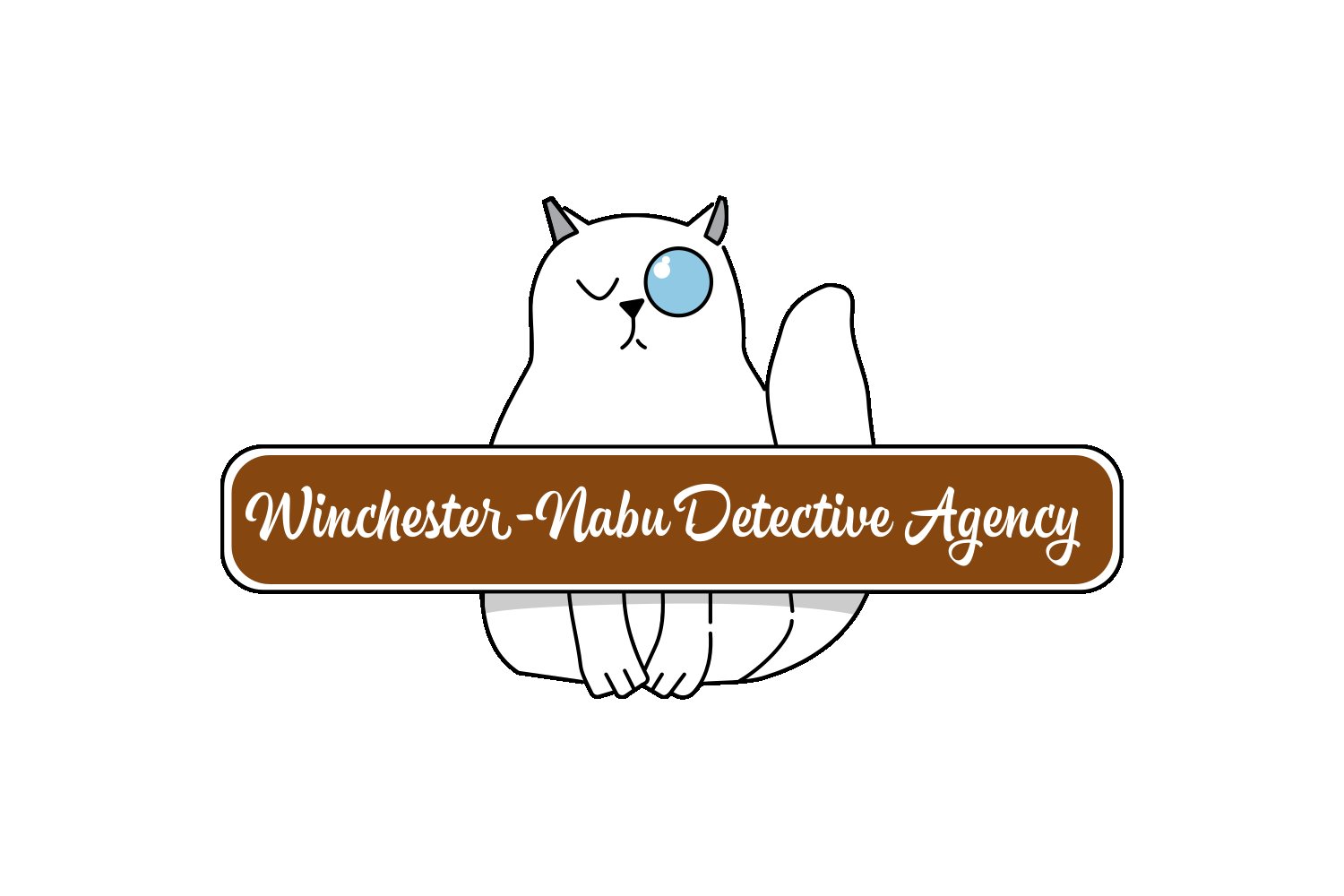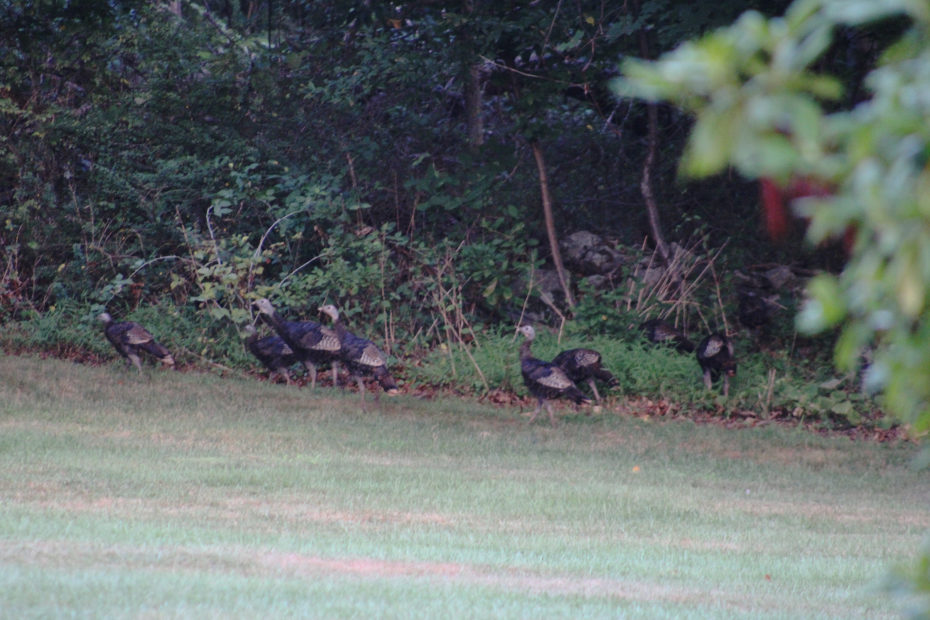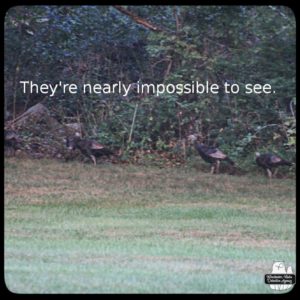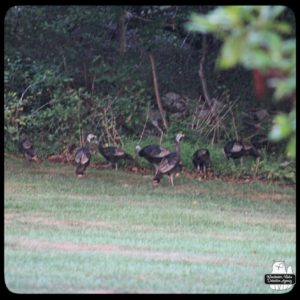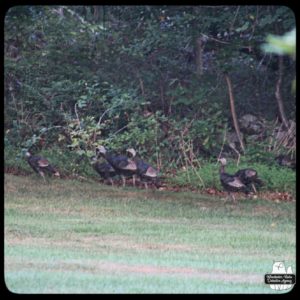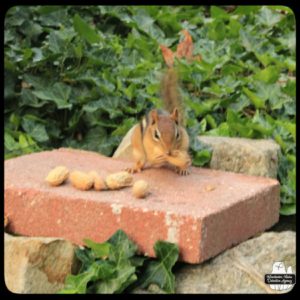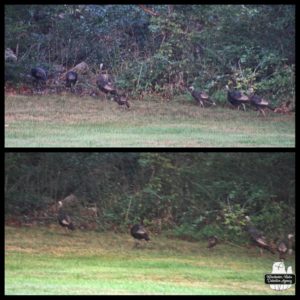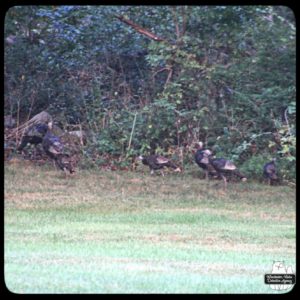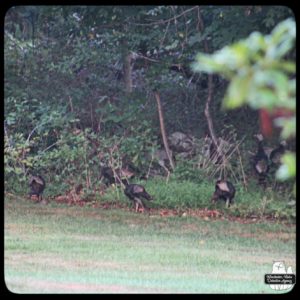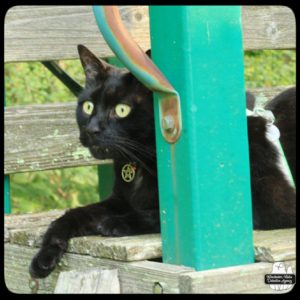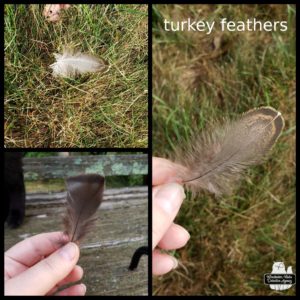This work is supported by the generous backers who adore my cat stories at Patreon.com/amberunmasked and they also get first access to what’s happening with my books and podcast.
Where We Left Off:
Gus and Oliver searched everywhere to find an important missing item.
The Turkey Brief:
I’ve written about the wild turkeys and the lore of the Gobblesquatch before. This year, our turkey encounter was something to behold. There were so many of the large birds walking through the estate grounds, I couldn’t even get all of them in one photo together.
The turkeys headed towards the corner trail while I called Gus and Oliver over to watch. The birds weren’t making much noise. The cats used their heightened hearing to listen carefully from all the way across the field.
When Gus and I gathered our adventure gear and went outside, we were greeted by eager chipmunks looking for their peanut snacks at the rock fortress. The pregnant chipmunk, Munka Kelly, was so grateful for the peanuts that she was willing to stay and chat with me as long as Gus was well-behaved. I couldn’t promise that he would, but I could promise to keep him on his leash.
“You know about the new mayor of Bunny Hollow, right?” Munka said to me.
“Of course. Bunnie Foy. She’s young and smart,” I said.
Munka stripped a shell off of peanut and put the two halves in her cheeks. She didn’t have a muffled voice until her mouth was full.
“The turkeys are interested in the politics of the area west of Bunny Hollow. Since it borders that district, they decided to have a…what do you call it? A caucus, basically.”
“Is it only turkeys attending this event?” I asked.
“No way. Everyone is involved! Out of nowhere, there’s human activity up there at the main house that owns half this mountain.” Munka looked alarmed. Her eyes darted to Gus, who was actually sitting still to watch.
“Yeah, we know about that. Those humans didn’t care about this place for years and now they’re suddenly taking over after the old people died.” All of us were stressed out about the possibilities regarding what could happen whenever the heirs sell the cute house and all that land where we’ve been taking care of trails and hiking.
The New Jersey website doesn’t have updated information on the fall season of turkey hunting. It’s usually in October with an average 3,000 birds “harvested” annually. The elder humans at the Winchester-Nabu Detective Agency learned that the hunting club hadn’t paid to use this half of the mountain in four years (probably about the time the landowner needed to be moved to a nursing home). That doesn’t mean they weren’t hunting–only that they weren’t paying to do it.
As for the neighboring land, that was purchased by out-of-towners specifically for hunting. We don’t know them and haven’t seen them, but their bait feeders and tree stands have been spotted on some of our more adventurous expeditions.
Before Munka scurried off to store the peanuts for her protein needs, I needed to see if there was more information about what the wildlife was going through during this stressful time.
She said, “One of the volkolaks has been keeping an eye on the place. Even when he’s not visible, he’s watching. That’s all I know. It sounds like they’re nervous.”
I had heard that since the youngest heir installed security cameras, a bear had triggered it once and sent the image to the young man’s phone. Gus hasn’t tried hiking up that way since we learned about the cameras even though, we’ve always been allowed to hike there. I thanked Munka and put out another helping of peanuts for her next trip to the red brick at the corner of the rock fortress (if the blue jays didn’t steal them first).
Gus and I began patrolling and ended up at Fort Winchester and the area where the turkeys had been. We found two turkey feathers that were analyzed in the field and taken back to the office for further research with Oliver. Wild birds secrete a hormone detectable in their feathers. It’s called corticosterone. This used to be measured through blood samples, but for over a decade, the ability to measure it in feathers has made an important impact on the study of birds and their stress. According to the 2011 Tufts University research, this indictor of stress in the birds is related to the birds’ health, natural threats, and man-made threats like environmental disruptions.
We have massive disruption in the environment proposed to the township and the county by another private landowner. She wants to turn a huge amount of acres into a compost facility. On the surface composting sounds like a great idea. Looking closer, what it means is about one hundred more dump trucks driving through these back roads PER DAY. The estimate of the monthly traffic just from those trucks is in the thousands. Not to mention that a proposed berm is supposed their only solution to noise pollution which doesn’t do a damn thing when you live above the berm elevation.
Case Findings:
Oliver took the wild turkey feathers and ran them through his tests. The turkeys showed higher levels of the stress response compared to feathers from our collection dated 2020 and 2021. Whoever becomes the next mayor of the Back 40 will have to address the environmental stressors rising in the local wildlife.
The turkeys aren’t simply gathering in large numbers to feel safer because of hunting. They are holding political rallies in the woods and fields. They want all the governing creatures to be aware of the plans.
Case Status: Open
